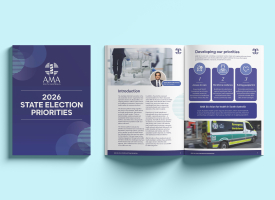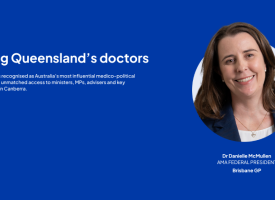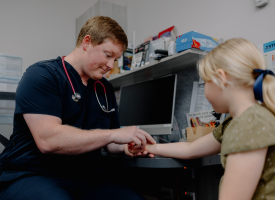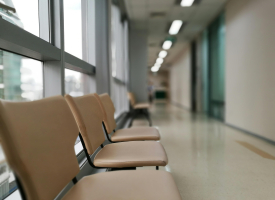“Pressure cooker” hospital workplaces need to change says AMA
AMA president Professor Steve Robson said the fourth national Medical Training Survey released today has highlighted the impact of a health system under crisis, one that has ongoing systemic problems of racism and bullying.
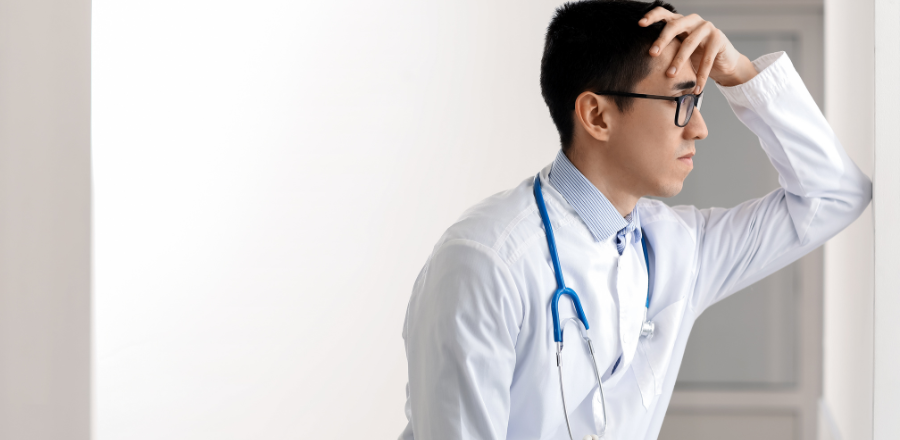
“Once again, we are presented with evidence of a workforce under immense pressure with an increasing number of doctors in training thinking about a future outside medicine,” Professor Robson said.
“The fact that 20 percent of those who responded to the survey are considering a career outside of medicine should be a wakeup call for Governments across the country, particularly as these are doctors in training who have spent years investing in their education and training,” Professor Robson said.
Over half of Australia’s doctors in training took part in the Medical Board’s annual survey, with 22,135 surveys analysed. The overwhelming majority of survey respondents — 80 per cent — were doctors in training, working in Australia’s hospitals.
Professor Robson said the survey results gave an important insight into the overall quality of medical training in Australia, not just workplace environment and culture but also curriculum, orientation, clinical supervision, access to and quality of teaching, career intentions and the impact of COVID-19 on training.
He said while the data revealed debilitating systemic issues there were positives to draw from.
“The survey highlights that despite ongoing workplace pressures and the impact of COVID-19, the quality of medical training in Australia remain high - 78 per cent of doctors in training would still recommend their current training position to other doctors, and 77 per cent would recommend their current workplace as a place to train.
“This speaks to the importance of profession led training in Australia and the commitment of clinicians to training the next generation of medical professionals,” Professor Robson said.
Chair of the AMA Council of Doctors in Training, Dr Hannah Szewczyk, said to retain trainee doctors, genuine and long-lasting changes needed to be made to improve the culture and working conditions in hospitals across the country.
“Trainees are experiencing a pressure cooker environment in their public hospital workplaces with totally unacceptable levels of bullying, harassment and racism, with Aboriginal and Torres Strait Islander trainees being particularly affected,” Dr Szewczyk said.
Dr Szewczyk said the survey found that where trainees had experienced bullying, harassment, discrimination and/or racism, 70% did not report it. 55% of these said they were concerned about the repercussions, and 51% said nothing would be done if they did make a report.
“This reluctance to report is indicative of poor workplace culture and highlights the failure of hospitals to establish the systems and processes necessary to tackle these problems, something the AMA believes needs to be addressed through legislative change and strengthening the National Safety and Quality Health Service Standards.
“We have seen South Australia and Queensland move to make hospital boards more accountable for providing a safe psychosocial work environment and this needs to happen in all states and territories,” Dr Szewczyk said.
2022 survey snapshot
- 7 per cent increase (to 53 per cent) in the number of trainees who have rated their workload as heavy/very heavy since the COVID-19 pandemic started in 2020.
- Two thirds (67 per cent) of doctors in training reported working more than 40 hours on average per week, including one in 10 (10 per cent) who worked more than 60 hours per week on average.
- 20 per cent of trainees are considering leaving medicine. This is up from 18 per cent in 2021. The rate is higher for Aboriginal and Torres Strait Islander trainees, with 29 per cent considering leaving.
- One in three doctors in training (34 per cent) had either experienced and/or witnessed bullying, harassment, discrimination and/or racism in their workplace.
- 55 per cent of Aboriginal and Torres Strait Islander trainees experienced and/or witnessed bullying, harassment, discrimination and racism.
- The most common type of behaviour experienced or witnessed was bullying (experienced: 12 per cent, witnessed: 19 per cent). In a sign of greater pressure on our health system, patients and/or family members/carers of the patients were also responsible for the bullying, harassment, discrimination and/or racism experienced or witnessed by two in five doctors in training
